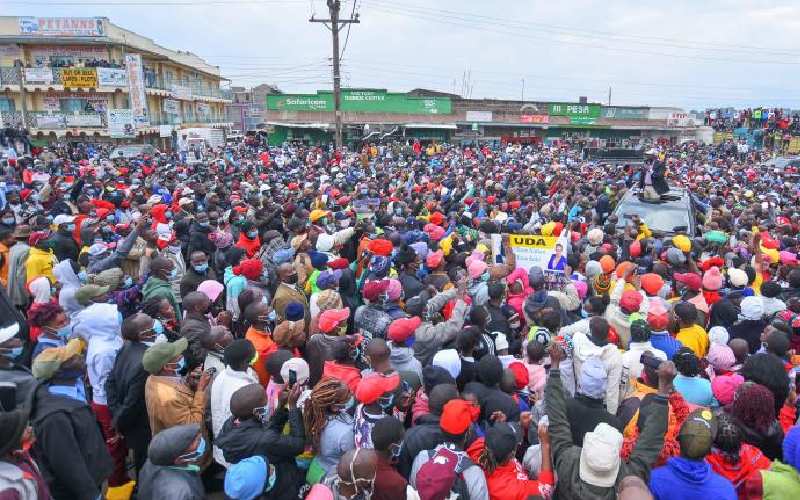×
The Standard e-Paper
Smart Minds Choose Us

Deputy President William Ruto at Kipipiri Centre, Rurii. [DPPS, Standard]
The moment of truth has come for Deputy President William Ruto and Jubilee affiliate party, the United Democratic Alliance (UDA).